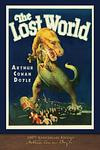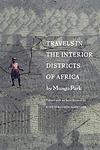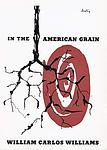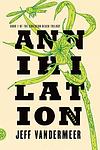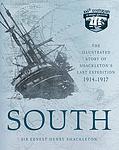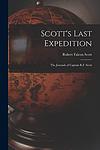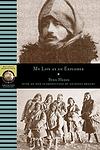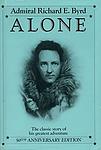The Greatest "Discovery and exploration" Books of All Time
Click to learn how this list is calculated.
This list represents a comprehensive and trusted collection of the greatest books. Developed through a specialized algorithm, it brings together 284 'best of' book lists to form a definitive guide to the world's most acclaimed books. For those interested in how these books are chosen, additional details can be found on the rankings page.
Genres
The category of "Discovery and exploration" in books encompasses stories of individuals or groups who venture into unknown territories, whether it be physical or intellectual. These books often focus on the journey of discovery, the challenges faced, and the lessons learned along the way. They can range from historical accounts of explorers to fictional tales of characters embarking on personal journeys of self-discovery. The common thread among these books is the theme of discovery and the exploration of new frontiers.
Countries
Date Range
Reading Statistics
Click the button below to see how many of these books you've read!
Download
If you're interested in downloading this list as a CSV file for use in a spreadsheet application, you can easily do so by clicking the button below. Please note that to ensure a manageable file size and faster download, the CSV will include details for only the first 500 books.
Download-
1. Heart of Darkness by Joseph Conrad
This classic novel follows the journey of a seaman who travels up the Congo River into the African interior to meet a mysterious ivory trader. Throughout his journey, he encounters the harsh realities of imperialism, the brutal treatment of native Africans, and the depths of human cruelty and madness. The protagonist's journey into the 'heart of darkness' serves as both a physical exploration of the African continent and a metaphorical exploration into the depths of human nature.
-
2. Voss by Patrick White
Set in 19th-century Australia, the novel follows a German explorer, Voss, as he leads a doomed expedition into the outback. Parallel to this, Voss develops a romantic relationship with Laura Trevelyan, a young woman he meets before his departure. Despite their physical separation, their spiritual and emotional connection deepens as Voss's journey becomes increasingly perilous. The narrative explores themes of obsession, the human condition, and the dichotomy between civilization and wilderness.
-
3. The Worst Journey in the World by Apsley Cherry-Garrard
"The Worst Journey in the World" is a gripping account of the Terra Nova Expedition to the South Pole in 1910-1913. The book vividly describes the perilous journey undertaken by a team of explorers, their struggles with brutal weather conditions, and the tragic loss of their leader and four other members on their return from the Pole. The narrative is not only about physical survival in harsh conditions, but also about the psychological toll of such an expedition, making it a timeless testament to human endurance and spirit.
-
4. Into the Wild by Jon Krakauer
This striking narrative non-fiction tells the real-life story of a young man who turns his back on society to live in the Alaskan wilderness. Despite a privileged background and a promising future, he donates his savings to charity, abandons his car and most of his possessions, and embarks on a journey into the wild. His solitary existence in the wild, his struggles for survival, and his untimely death provide a profound exploration of the allure of wilderness and the human yearning for solitude and self-discovery.
-
5. Journals by Meriwether Lewis, William Clark
This book is a compilation of the detailed journals kept by two explorers during their expedition across the American West, from 1804 to 1806. The journals provide a first-hand account of their encounters with Native American tribes, their observations of new plant and animal species, and the challenges they faced while traversing uncharted territories. The explorers' writings not only offer insights into their historic journey but also serve as a valuable resource for understanding early 19th-century American history and the country's westward expansion.
-
6. The Lost World by Arthur Conan Doyle
"The Lost World" is an adventure novel that follows a group of explorers as they embark on a perilous journey to a remote plateau in South America, where prehistoric creatures still roam. Led by an eccentric professor, the team encounters dangerous dinosaurs, hostile tribes, and treacherous terrain, testing their courage and resilience. As they strive to survive and document their discoveries, the explorers face thrilling encounters and unexpected challenges that push them to their limits. This thrilling tale of exploration and survival is filled with suspense, action, and a sense of wonder as the characters navigate the mysteries of this lost world.
-
7. In the Heart of the Sea by Nathaniel Philbrick
This historical narrative tells the true story of the 19th-century whaleship Essex, which was rammed and sunk by a sperm whale in the South Pacific. Stranded thousands of miles from land, the crew of the Essex was pushed to their limits and forced to do the unthinkable to stay alive. The tale explores the harrowing ordeal of these men through their long journey at sea, their encounters with nature's fury, hunger, disease, and their own fear and despair.
-
8. The True History of the Conquest of New Spain by Bernal Díaz del Castillo
This book provides a first-hand account of the conquest of Mexico by the Spanish during the 16th century. It offers a detailed narrative of the events, battles, and interactions with native tribes, including the Aztecs. The author, a soldier in the Spanish army, provides a unique perspective on Hernán Cortés and his tactics, the politics of the time, and the cultural and religious practices of the indigenous people. The book also highlights the hardships, challenges, and ethical dilemmas faced by the conquistadors.
-
9. Travels by Marco Polo
This book is a detailed account of a Venetian merchant's extensive travels throughout Asia during the 13th century. The narrative provides a comprehensive exploration of the diverse cultures, customs, landscapes, wildlife, and wealth of the Eastern world, including the Mongol Empire and China, where the author spent time in the court of Kublai Khan. His descriptions of the grandeur and sophistication of these civilizations challenged European assumptions about the East, and his tales of exotic wonders and adventures continue to captivate readers today.
-
10. Arctic Dreams by Barry Lopez
"Arctic Dreams" is a comprehensive exploration of the Arctic region, its landscapes, wildlife, and indigenous cultures. The author combines his personal experiences from his time spent in the Arctic with historical, scientific, and anthropological insights, providing readers with a profound understanding of this remote and often misunderstood region. The book also discusses the impact of climate change on the Arctic and its implications for the rest of the world.
-
11. Travels in the Interior Districts of Africa by Mungo Park
"Travels in the Interior Districts of Africa" is a detailed account of the author's exploration into the heart of Africa at the end of the 18th century. The narrative provides an in-depth look at the geography, flora, fauna, and local cultures of the region at the time. The author, a Scottish explorer, recounts his journey along the Niger River, his encounters with different African tribes, his experiences of being captured and enslaved, and his eventual escape. The book offers a unique perspective on African society and the European perception of Africa during this period.
-
12. In the American Grain by William Carlos Williams
"In the American Grain" is a collection of essays that explores the history and culture of America through the lives of significant figures, such as Christopher Columbus, Abraham Lincoln, and Edgar Allan Poe. The author offers a unique perspective on these figures and events, challenging traditional narratives and interpretations. The book provides a deep analysis of American identity, emphasizing its complexity and diversity.
-
13. Farthest North by Fridtjof Nansen
"Farthest North" is a riveting firsthand account of a polar expedition undertaken in the late 19th century. The author, a Norwegian explorer, recounts his daring attempt to reach the North Pole by allowing his specially designed ship to be frozen into the Arctic ice and carried by the drift. The narrative includes fascinating descriptions of the Arctic environment, thrilling tales of survival against harsh conditions, and scientific observations. The expedition, although it did not reach the North Pole, achieved the highest latitude to that date and contributed significantly to Arctic exploration.
-
14. Galapagos: World's End by William Beebe
This book presents a fascinating exploration of the Galapagos Islands, a remote and isolated archipelago known for its unique and diverse wildlife. The author, a renowned naturalist, provides detailed observations and insights into the islands' flora and fauna, geography, and history. Through his vivid descriptions and personal experiences, the reader gains a deep understanding of this unique ecosystem and its importance to our global environment.
-
15. Annihilation by Jeff VanderMeer
In the novel, a team of four women—an anthropologist, a surveyor, a psychologist, and a biologist—embark on an expedition into Area X, a mysterious and remote region cut off from civilization. The area is known for its strange occurrences and the disappearance of previous expedition members. As the team delves deeper into the wild and enigmatic landscape, they encounter bizarre creatures, cryptic signs, and the remnants of a lost civilization. The biologist, serving as the narrator, documents their discoveries and her own personal transformations, driven by the unseen forces of Area X. The novel explores themes of nature, mutation, and the unknown, as the expedition's members confront the limits of knowledge and the consequences of seeking to uncover the inexplicable.
-
16. Water Music by T. C. Boyle
"Water Music" is a historical fiction novel that follows the adventures of two men, an explorer and a petty criminal, during the late 18th century. The narrative alternates between the perspectives of the explorer, who embarks on a quest to discover the source of the Niger River in Africa, and the criminal, who is trying to navigate the underbelly of London. The novel blends humor, rich historical detail, and adventure as it explores themes of ambition, survival, and the clash of cultures.
-
17. The Exploration of the Colorado River by John Wesley Powell
This book is a firsthand account of the first U.S. government-sponsored passage through the Grand Canyon. The author, a one-armed Civil War veteran, and his team of nine men risked their lives to accomplish this feat in 1869. They faced dangerous rapids, food shortages, and potential attacks from Native American tribes. The narrative provides detailed descriptions of the geography, geology, and Native American inhabitants of the region, offering invaluable insights into the uncharted territory of the American West.
-
18. South by Ernest Shackleton
"South" is a gripping account of an ill-fated Antarctic expedition led by a brave explorer. The journey takes a disastrous turn when their ship gets trapped and eventually crushed by ice, forcing the crew to abandon ship and embark on a harrowing journey over sea and land in a desperate bid for survival. The book is a testament to the crew's indomitable spirit and the leadership that kept them alive against all odds.
-
19. Journals (Cook) by James Cook
This book is a compilation of the personal journals of an 18th-century British explorer and naval captain, who embarked on three significant voyages of discovery across the Pacific Ocean. These entries provide a firsthand account of his encounters with various indigenous peoples, his detailed observations of the flora, fauna, and geography of newly discovered lands, and his experiences of seafaring life. The journals also record his scientific experiments and astronomical observations, contributing to the fields of geography, anthropology, and ethnography.
-
20. Home of the Blizzard by Douglas Mawson
"Home of the Blizzard" is a first-hand account of an Antarctic expedition led by the author. The narrative takes the reader through the challenging journey of survival in the harsh, icy wilderness of Antarctica. It details the struggles faced by the team, including extreme weather conditions, loss of team members, and near-death experiences. The book serves as a testament to human resilience and the spirit of exploration in the face of adversity.
-
21. In the Land of White Death by Valerian Albanov
This book is a gripping first-person account of a Russian navigator's survival journey in the Arctic wilderness. After his ship gets trapped in pack ice, the protagonist and his crew embark on a grueling trek across the frozen landscape, battling extreme weather, starvation, and despair. The narrative provides a vivid depiction of the harsh Arctic environment and human resilience in the face of adversity.
-
22. Scott's Last Expedition: The Journals by Apsley Cherry-Garrard
This book is a detailed account of Robert Falcon Scott's ill-fated Terra Nova Expedition to the South Pole, as told through the journals of a member of the expedition. It provides a gripping and poignant insight into the harsh realities of polar exploration in the early 20th century, including the team's scientific endeavors, their struggle against the brutal Antarctic conditions, the camaraderie among the men, and the tragic death of Scott and his companions on their return journey from the South Pole.
-
23. Starlight and Storm by Gaston Rébuffat
This book is a vivid account of the exhilaration and challenges of mountaineering, written by a renowned mountaineer. It provides readers with an insightful look into the world of high altitude climbing, detailing the author's experiences and adventures on some of the most dangerous and iconic peaks in the Alps. The author also shares his philosophy on mountaineering, emphasizing the importance of team spirit, careful preparation, and respect for the mountains.
-
24. My Life as an Explorer by Sven Hedin
"My Life as an Explorer" is an autobiographical account of a famous Swedish explorer's adventures across Central Asia in the late 19th and early 20th centuries. The book includes vivid descriptions of his encounters with diverse cultures, dangerous wilderness, and ancient civilizations. The author also shares his experiences of mapping uncharted territories, surviving harsh climates, and uncovering archaeological treasures, providing readers with an intimate glimpse into the life of an explorer during this era.
-
25. Alone by Richard Byrd
This book is a riveting account of the author's time spent alone in the Antarctic wilderness. He details his experiences of solitude, the harsh climate, and the physical and mental challenges he faced during his isolation. The narrative also provides a deep insight into his struggle for survival, his observations of the natural world, and his reflections on the human condition.
Reading Statistics
Click the button below to see how many of these books you've read!
Download
If you're interested in downloading this list as a CSV file for use in a spreadsheet application, you can easily do so by clicking the button below. Please note that to ensure a manageable file size and faster download, the CSV will include details for only the first 500 books.
Download




